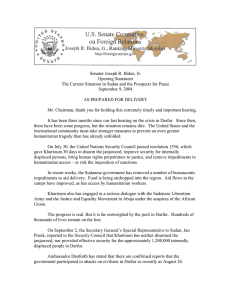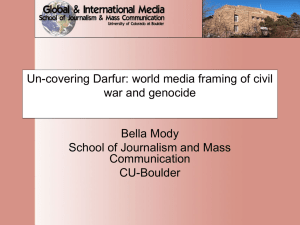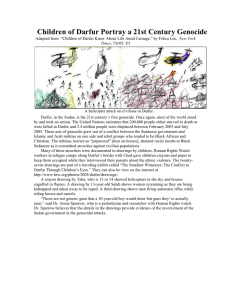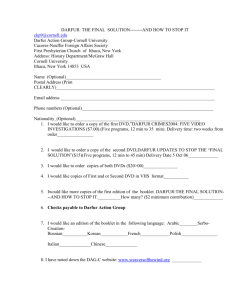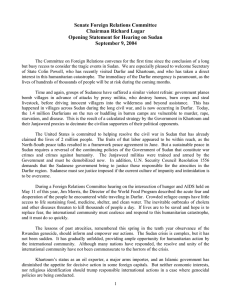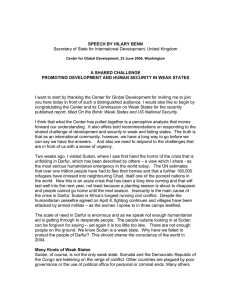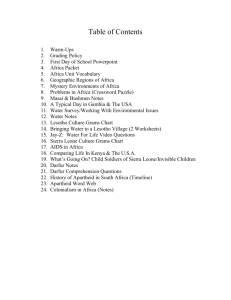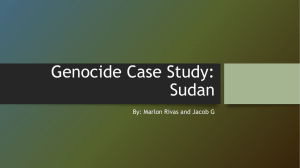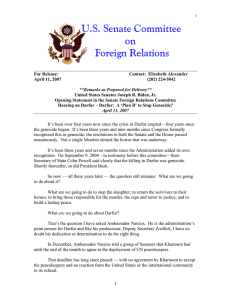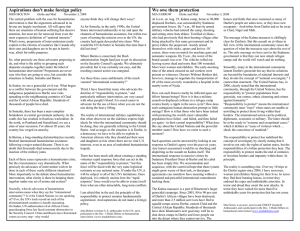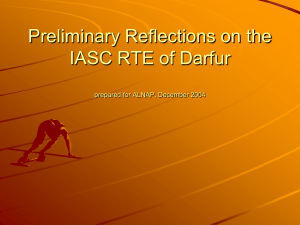Opening Statement Senate Foreign Relations Committee Sudan Hearing April 11, 2007
advertisement
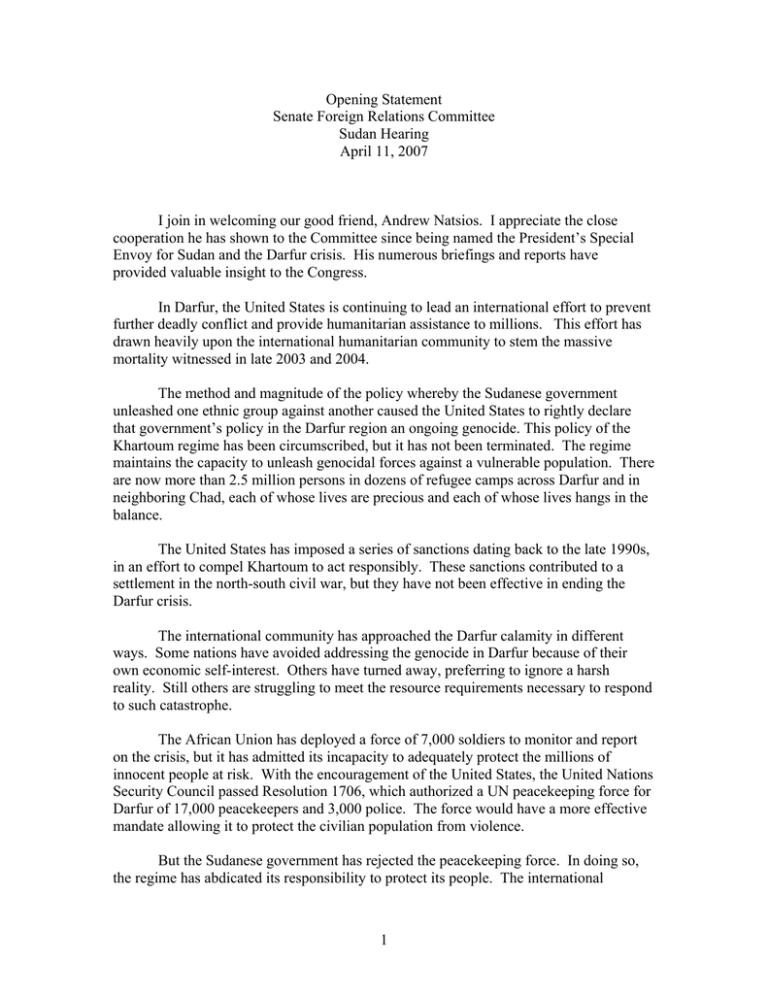
Opening Statement Senate Foreign Relations Committee Sudan Hearing April 11, 2007 I join in welcoming our good friend, Andrew Natsios. I appreciate the close cooperation he has shown to the Committee since being named the President’s Special Envoy for Sudan and the Darfur crisis. His numerous briefings and reports have provided valuable insight to the Congress. In Darfur, the United States is continuing to lead an international effort to prevent further deadly conflict and provide humanitarian assistance to millions. This effort has drawn heavily upon the international humanitarian community to stem the massive mortality witnessed in late 2003 and 2004. The method and magnitude of the policy whereby the Sudanese government unleashed one ethnic group against another caused the United States to rightly declare that government’s policy in the Darfur region an ongoing genocide. This policy of the Khartoum regime has been circumscribed, but it has not been terminated. The regime maintains the capacity to unleash genocidal forces against a vulnerable population. There are now more than 2.5 million persons in dozens of refugee camps across Darfur and in neighboring Chad, each of whose lives are precious and each of whose lives hangs in the balance. The United States has imposed a series of sanctions dating back to the late 1990s, in an effort to compel Khartoum to act responsibly. These sanctions contributed to a settlement in the north-south civil war, but they have not been effective in ending the Darfur crisis. The international community has approached the Darfur calamity in different ways. Some nations have avoided addressing the genocide in Darfur because of their own economic self-interest. Others have turned away, preferring to ignore a harsh reality. Still others are struggling to meet the resource requirements necessary to respond to such catastrophe. The African Union has deployed a force of 7,000 soldiers to monitor and report on the crisis, but it has admitted its incapacity to adequately protect the millions of innocent people at risk. With the encouragement of the United States, the United Nations Security Council passed Resolution 1706, which authorized a UN peacekeeping force for Darfur of 17,000 peacekeepers and 3,000 police. The force would have a more effective mandate allowing it to protect the civilian population from violence. But the Sudanese government has rejected the peacekeeping force. In doing so, the regime has abdicated its responsibility to protect its people. The international 1 community should recognize this situation as untenable and respond with far greater unity and conviction. Andrew Natsios has traveled to capitals and spoken to leaders around the world in pursuit of a more consolidated international economic and diplomatic response. We welcome his assessment of those visits in achieving greater coordination and coherence in the international policy toward Darfur. We also welcome the insights of all of our witnesses concerning improving humanitarian assistance to the region, preventing further conflict, and reaching a peaceful and sustainable settlement. ### 2
